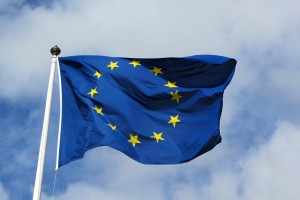
After more than 40 years of operation, DTVE is closing its doors and our website will no longer be updated daily. Thank you for all of your support.
EC faces criticism over ‘who pays for broadband’ consultation

The European Commission has drawn a storm of criticism over its launch of a consultation on potentially making content companies and big tech players contribute to the upgrade of the continent’s telecom networks.
Telecom companies have long lobbied for big tech companies such as Facebook and Netflix to pay a ‘fair share’ of upgrade costs as they account for the buik of traffic on their networks. The EC has bowed to that pressure with a 12-week consultation on who should pay and how.
The preamble to the relevant section of the consultation document notes that “the amount of data exchanged – and harvested – is larger than ever and will increase, as the global consumer internet traffic has grown with 34.4 % CAGR since 2015” .
It observes that there “seems to be a paradox between increasing volumes of data on the infrastructures and alleged decreasing returns and appetite to invest in network infrastructure” and adds that “some electronic communications operators, notably the incumbents, call for the need to establish rules to oblige those content and application providers (CAPs) or digital players in general who generate enormous volumes of traffic to contribute to the electronic communications network deployment costs”.
The document observes that incumbents believe “such contribution would be ‘fair’ as those CAPs and digital players would take advantage of the high-quality networks but would not bear the cost of their roll-out”.
The preamble also notes that this view is not universal, and that “CAPs and other digital players argue that any payments for accessing networks to deliver content or for the amount of traffic transmitted would not only be unjustified, as the traffic is requested by end-users and costs are not necessarily traffic sensitive (notably in fixed networks), but would also endanger the way the internet works and likely breach net neutrality rules”.
Thierry Breton, the Commissioner for the Single Market, defended the consultation, telling a news conference that a contribution mechanism could be one solution to the problem of the need for big investment in networks in the context of low rates of return on investment to telecom players.
The European Telecommunications Network Operators Association (ETNO) welcomed the consultation.
“This consultation is a positive and urgent step towards addressing major imbalances in the Internet ecosystem to the benefit of European end-users. The future of telecoms is relevant well beyond our sector alone, as most parts of the European economy and society have a strategic interest in a faster, deeper, greener and innovation-oriented roll-out of 5G and fibre networks,” it said.
“This consultation also helpfully tackles a series of essential questions on how EU policy and regulation interacts with future trends in technology, use of networks and services, return on investment and market structure.”
Players including Facebook owner Meta have criticised the proposals, arguing that the already contribute via investments in hosting content and bring value to the industry as a whole.
The Washington-based think-tank the Information Technology & Innovation Foundation’s chief Joe Kane meanwhile weighed in against any move to make users pay.
“The Internet ecosystem relies on negotiated agreements between broadband providers and content companies. Both sides of the market serve consumers best when deals can be struck without the government putting its thumb on the scale in favor of ISPs or content companies,” said Kane.
“The so-called ‘fair share’ proposal would increase costs and disincentivize efficient traffic management practices. Moreover, it is impossible only to raise costs for ‘big tech’ companies. European consumers will see the costs passed on to them. As a result, consumers would pay higher prices for a lower-quality Internet experience. The European Commission should reject this proposal.”


